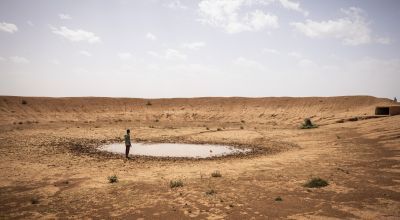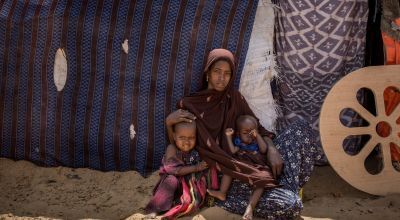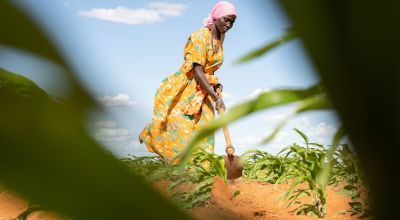
Read our 2024 annual report

Knowledge Hub
Five things we are doing to prevent famine in Somalia
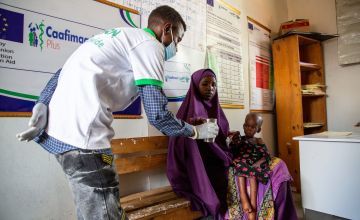
Famine is imminent in parts of Somalia due to four consecutive failed rainy seasons, and children are already dying of malnutrition. We are working rapidly to prevent further catastrophe. This is how.
Concern has been working in Somalia since 1986, and is responding to the unfolding crisis by providing support in the areas of food security and livelihoods, health and nutrition, water, sanitation and hygiene.
1. Providing malnourished children with Ready to Use Therapeutic Food (RUFT)
In Somalia, an estimated 1.5 million children under the age of five face acute malnutrition. At least 500 have died in stabilisation centres across the country since January.
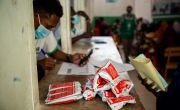

Concern’s Country Director for Somalia, Abdi Rashid, told us recently that we are currently supporting around 2600 children per month with RUFT. However, we anticipate this going up to over 3000 per month as we see an increase of children coming to the centres we are supporting on a daily basis.
The centres we support are in or in the surrounding areas of Mogadishu.
2. Cash transfers
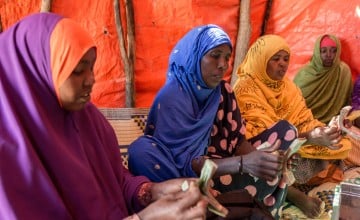
Cash transfers help mitigate against lost assets, for example livestock, that would otherwise be sold for cash to buy essential goods.
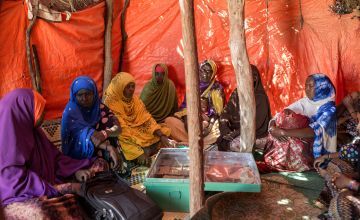
By the end of August 2022, Concern and partners have reached 240,473 people in 14 districts with multi-purpose cash assistance under drought response.
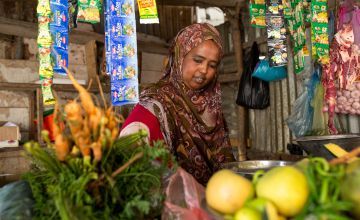
3. Water, sanitation and hygiene maintenance
Concern is rehabilitating and performing maintenance on non-functioning sources of water, for example rehabilitating boreholes and wells. We are also continuing water trucking in Ber’ano and East-Ime with four trucks, delivering 80,000 litres per day.
Additional activities include:
- The construction of 105 latrines;
- The construction of handwashing stations;
- The distribution of hygiene kits and cleaning tools and;
- Hygiene promotion.
4. Keeping health clinics up and running
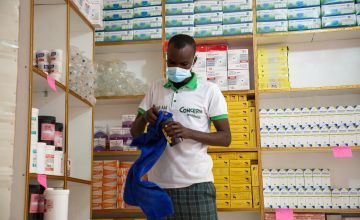
Concern supports 22 fixed and mobile health centres in Somalia, providing out-patient consultations, treatment for malnutrition, antenatal and post-natal supports and childhood immunisations to over 378,000 patients in 2021.
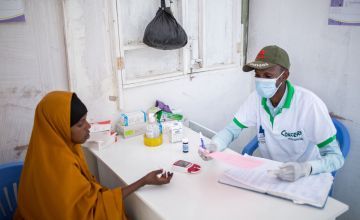
Towards the end of August into early September, 11,831 people attended outpatient department (OPD) services in Concern-supported health facilities in two weeks. Over 400 people were treated for acute watery diarrhoea (AWD) and 37 cases of suspected measles and 173 new cholera cases were reported.
5. Campaigning for world leaders to step in
We’ve learnt some hard lessons about acting quickly when there’s a likelihood of famine. The last time famine was declared in Somalia was 2011, when 260,000 people died. The official announcement triggered a huge global response but it came too late – half of the lives lost took place before the world sprang into action.
We can’t let that happen again. That’s why we’re working with other organisations to sound the alarms early.
Concern joined forces with other development and humanitarian organisations in a briefing to Irish politicians earlier this year to call for greater political action on severe hunger in the Horn of Africa.
Dóchas hosted the political briefing at which representatives from Concern, GOAL, Oxfam Ireland and Trócaire explained to politicians the reality for the people of Somalia, Ethiopia and Kenya and urged the Irish government to demonstrate and hold firm leadership at an international level.
“The threat of famine in the 21st century is, above all, a political failure. We are now facing the consequences of years of inaction. The failure to address the deadly combination of climate change, conflict and the economic consequences of the Covid-19 pandemic has left the region in extreme crisis,” said Jane-Ann McKenna, CEO of Dóchas, which collectively represents the Irish development and humanitarian organisations calling for action. “This is now exacerbated by the disruption of the global economy and food systems as a result of conflict in Ukraine.”
It is estimated that one person is dying every 48 seconds from hunger in Ethiopia, Kenya and Somalia and millions more are at risk of starvation. We’re working with local communities to prevent the situation getting worse, but we need your support to reach vulnerable children and their parents with the emergency food they desperately need.
Please, will you give a gift today to help families in East Africa survive?
Other ways to help
Corporate support
Is your company interested in working together for a common cause?
Fundraise for Concern
From mountain trekking to marathon running, cake sales to table quizzes, there are lots of ways you can support our work.
Buy a gift
With an extensive range of alternative gifts, we have something to suit everybody.
Leave a gift in your will
Leave the world a better place with a life-changing legacy.
Volunteer with Concern
The lots of ways to get involved with our work as a volunteer
School fundraising
Without the generous support from schools, we wouldn't be able to do the work that we do.


